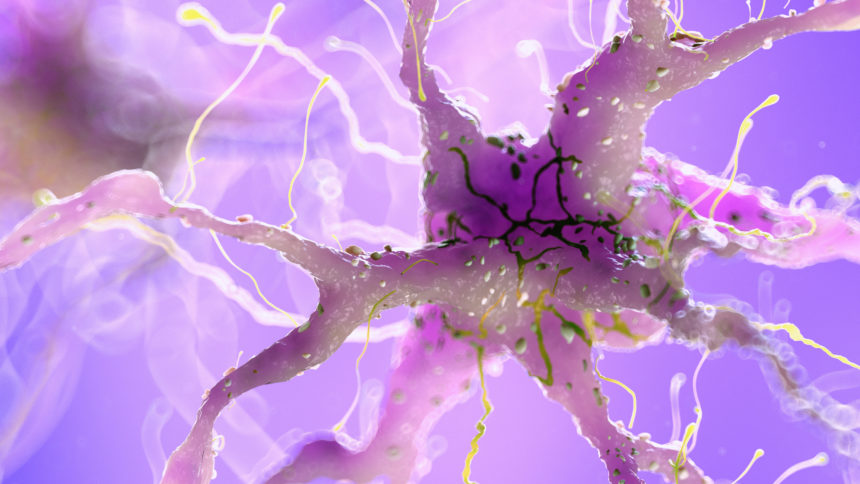
A mechanism that involves disruption of nighttime sleep may underlie the link between beta amyloid deposits and cognitive impairment in seniors with cognitive disorders, say scientists from Thomas Jefferson University, Pennsylvania.
Accumulation of beta amyloid (a protein fragment) in the brain is associated with dementia. Previous research in people with normal cognition has found a link between dysfunctional sleep and these deposits. The current study sought to determine whether beta amyloid continues to play a role in sleep dysfunction after the onset of cognitive decline.
The researchers examined 52 participants aged 65 years and older diagnosed with mild cognitive impairment or dementia. Participants completed cognitive testing, sleep questionnaires and brain scans.
Depending on the location in the brain, beta amyloid deposits were tied to nighttime awakenings or daytime sleepiness. Nocturnal awakenings, but not daytime sleepiness, were associated with poor cognition. Meanwhile, beta amyloid deposits were indirectly linked to cognitive impairment in people who had nocturnal awakenings, wrote Jason C. You, M.D., Ph.D., and colleagues.
The study was published in JAMA Network Open.




